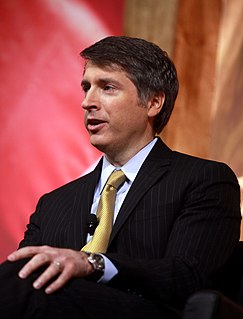A Quote by Thomas Friedman
What I want is natural gas to be a bridge to a cleaner energy future, not a dam against a cleaner energy future, not a dead end. To get this right, to get the most out of it, we not only have to make sure we exploit natural gas in a clean way - it's a challenge - but we also have to make sure that we are instilling and implementing all the incentives to win solar, nuclear energy efficiency that will make them continually competitive with natural gas in the future.
Related Quotes
In the near future, despite the development of alternative energy, when you look at the economics and environmental standards, then there's no other source of primary energy in the world than natural gas. Well, perhaps there is nuclear energy but there are also a lot of issues there and there are opponents of nuclear energy. Gas doesn't have those opponents. But there is a country that is, obviously, the world leader in gas reserves. That's our country, the Russian Federation.
Today, natural gas now outstrips coal as the leading provider of electricity in America. If this is as big as people believe it is, natural gas will soon be powering trucks and marine ships. Maybe even standard commercial cars that people use at home through compressed natural gas, other gas to liquids. The potential is there for more energy independence by America and a reliance on cleaner fuel - natural gas emits half as much as coal, in terms of carbon emissions. That's a real bounty.
We've got to control our own energy. Now, not only oil and natural gas, which we've been investing in; but also, we've got to make sure we're building the energy source of the future, not just thinking about next year, but ten years from now, 20 years from now. That's why we've invested in solar and wind and biofuels, energy efficient cars.
Coal used to be a very dirty fuel but coal has become cleaner and cleaner over the decades. Clean coal now is quite clean. Clean coal now has the same emissions profile as natural gas. Clean coal can become cleaner still. We can take even more of the pollutants out of coal and I believe we should. Clean coal, I think, is the immediate answer to Canada's energy needs and the world's energy needs. There are hundreds of years available of coal supplies. We shouldn't be squandering that resource. We should be using it prudently.
Through Duke Energy's strong balance sheet and electric generation expertise, and Piedmont's understanding of natural gas markets and proficient operations, the combined company will be well-positioned for a future that may require additional natural gas infrastructure and services to meet the needs of our customers.
The transition from coal, oil, and gas to wind, solar, and geothermal energy is well under way. In the old economy, energy was produced by burning something - oil, coal, or natural gas - leading to the carbon emissions that have come to define our economy. The new energy economy harnesses the energy in wind, the energy coming from the sun, and heat from within the earth itself.
The horn of dilemma of energy politics is what really drives concern about this energy in this country, at the gut level for most people, is high gas prices. And if you really want to fight global warming and try to reduce our carbon emissions, the cleanest, easiest, most rational way to do it would to make the price of gas even higher through very stiff gas prices.






























